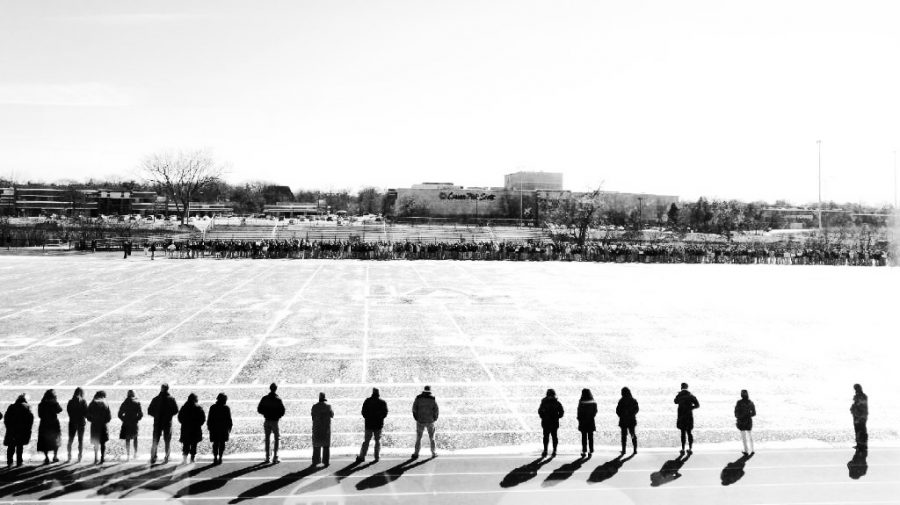Why Don’t We Care?
Students and teachers walk out on March 14th 2018 in honor of the victims of the Parkland shooting.
October 1, 2019
There was a school strike for climate last week, but I’m sure you know that if you’re active on Instagram.
Did you go? Chances are, you didn’t. I didn’t either, so I won’t hold it against you.
This is the problem, though. Rambler attendance at these strikes have been minimal, despite the number of us calling for change.
The issue extends further beyond just climate change protests. When 17 victims our age were killed in a school shooting in 2018, Loyola faculty members and students organized a walkout to both honor them and allow students to express their anger with the injustice at hand.
The walkout was not supposed to be organized by the faculty. It was staff-organized so that students would not receive a JUG for participation.
Ramblers are tentative to participate as activists, and that is a major issue for a school that prides itself on cultivating Men and Women For Others.
I was fortunate enough to be able to sit down with about 20 Loyola seniors and discuss the topic of Rambler complacency. The students seemed to agree that the hesitation to protest is due to three reasons.
First and foremost, senior Sarah Murphy puts it plainly. “People don’t want to miss school,” she says. And she’s right — many students want to avoid truancies and JUGs, so they do not walk out or strike.
Senior Kara Finneke says that it “seems easier for [students in] large, public schools” to strike and get away with unexcused absences.
However, senior Jake Soucheray argues that “it’s worth the JUG if you care about it,” and the class agreed that excusing protest-related absences would defeat the purpose. The fear of being disciplined for protesting may just have to be pushed aside if the issue is one Ramblers are passionate about.
Secondly, Ramblers tend to “spread awareness” on social media rather than actually going out and protesting the issue they’re addressing. Senior Matthew LeClercq says that students “want people to think they’re spreading awareness — it helps them not feel guilty.” He says that sharing news about social and political issues online creates a false sense of resolvement.
Students feel content in simply posting about injustices without doing much else about them. This allows protests and strikes to seem less necessary, even though a 65% majority of the 20 students agreed that protests are effective.
Thirdly, “It’s hard to have political views in a political institution,” Soucheray says. Most students agreed that Loyola demonstrates a bias.
Finneke and Gigi Schaefer mentioned the fact that in the past, a Rambler was punished for speaking out against gun violence during the Examen while the school sanctioned prayers for victims of abortion. Even more recently, they mention that while this year no prayers were dedicated to victims of 9/11, we said prayers for those seeking asylum at our borders.
LeClercq says that “we know what we’re getting into at a private school,” and while that is true, many students still find it unfair that some views are encouraged while others aren’t.
Senior Aiden Jurcenko says that “the school is open to activism, but not demonstrated activism. They want you to develop your ideas but not go out and show them.”
We don’t care enough to protest and display our activism because we fear punishment, because we feel content just talking behind a screen, and because our school does not fully support activism on views from all parts of the socio-political spectrum.

